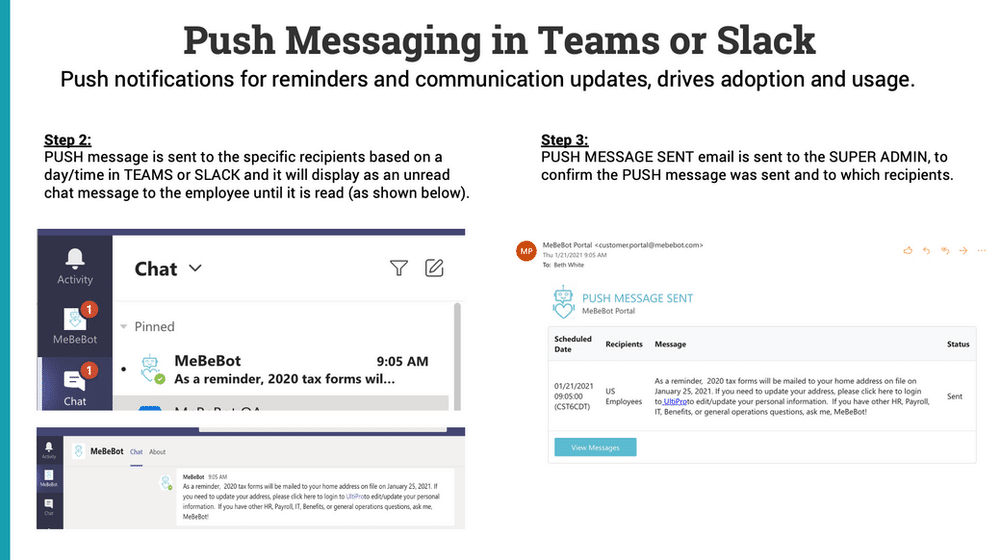Chief Human Resources Officers (CHROs) earned the respect of their Chief Executive Officers (CEOs) with their adept management of critical issues over the past two years. In fact, three out of four CEOs said they look to their HR chiefs for views on business strategy, operational issues, and planning, according to a recent survey, the State of HR Report.
How did CHROs earn such respect? It began by helping their organizations navigate Covid-19 and the Great Resignation, putting plans in place to guide employees toward the next step in the process – The Great Recommitment, where we will experience an uptick in engagement and retention.
A key element of this was assisting with the safe transition to remote work for office workers and safe work practices to halt the spread of Covid-19 in the workplace. Another critical piece was recognizing how Millennials and Gen-Z employees redefine what they want from employers.
Last year, 31 million employees quit their jobs. What are they looking for to recommit to their current employer? They want work with meaning, higher pay and benefits, options for hybrid working, cultures that are collaborative, transparent, and equitable, helpful digital technology, and careers – not just a job. The companies that can transition their employer brands to be the Future of Work will transcend the Great Resignation and achieve the Great Recommitment.
Organizations need to nurture talent
CEOs now have talent management top of mind. Chief Executive magazine learned in their recent survey that CEOs want their HR organizations to spend more time finding, retaining, and upskilling employees. The pandemic proved that people are the key to business achievement. Companies need to invest in digital re-skilling and upskilling, by setting goals of a vision for the future and evaluating progress over time. Yet, Garter HR Research indicates that fifty-eight percent of the workforce will need new skills to perform their jobs successfully. Having a focus on hiring and retaining is not enough. Organizations need to nurture talent.
In addition to putting in place the strategies and digital technology to provide employees what they want, as listed above, about 55 percent of CEOs want their HR organizations to improve the skills of the organization’s managers. Better managers motivate employees, make for a happier workplace, set the tone for the culture, and improve business outcomes. They serve as mentors, who teach their colleagues as they work.
CEOs also want a focus on building and maintaining culture. While CEOs and CHROs agree that remote work makes maintaining a company culture difficult, they know it is more essential than ever. Employees may feel disconnected from their colleagues, especially with a hybrid work arrangement. So, they need a culture to unify them.
Part of a better culture includes transparency and equity. However, according to the State of HR Report, CEOs and CHROs disagree on the importance of Diversity, Equity, and Inclusion (DEI). The lesson for CHROs is to demonstrate how DEI initiatives contribute to ROI and business outcomes.

CEOs set the strategic direction for the organization and prioritize what needs to change in their organizations, including talent management. CEOs need to define the burning platform for talent management initiatives and get other executive staff members involved. On the other hand, HR is to help shape the strategies, bring its expertise to bear, and lead the charge with clear goals, communications, and metrics.
Chatbots like MeBeBot help in many ways
MeBeBot’s Intelligent Assistant, or Chatbot, installs in Teams or Slack, to allow employees to receive automated answers to their common HR, IT, or Operational focused questions. However, for the internal teams, MeBeBot’s Employee Experience platform acts as a new digital conduit from the business to their employees.
First, MeBeBot unifies the organization’s culture by providing clear and consistent strategic messages, using Push Messaging. These messages can be sent from the CEO and other executives, wherever the employee resides, at home, the office, in the US, or another country, as an app in Teams or Slack, to capture attention in the flow of work.
Second, MeBeBot gathers feedback from employees about communicated strategies with our Pulse Surveying feature. Pulse surveys provide a new method of gaining more participation in quick one-question surveys, from Slack or Teams, to give insights back to the business quickly and efficiently.
Third, executives and HR strategists can plan a cadence of messages that can be timed for different release dates using our Push Messaging feature – to various groups of employees, using existing distribution lists created by IT. This allows for more personalization of messaging to targeted employee groups.
MeBeBot’s Intelligent Assistant not only answers employee’s IT, Operations, and HR questions accurately, it also is a strategic tool to launch and update the workforce on enterprise-wide strategies, such as talent management. Shape your company’s future success. Start by designing your “Future of Work,” using digital solutions, like MeBeBot, which is easy to configure and launch to your employees in days or weeks. Gain a strong ROI by retaining talent and focusing on strategic initiatives that affect overall company performance for years to come.
MeBeBot’s Intelligent Assistant seamlessly installs as an app in Teams, Slack, or web portals to provide employees with instant automated answers to global HR, IT, and Ops FAQS, real-time usage Dashboards, Push Messaging, and custom Pulse Surveys, generating instant employee feedback on of-the-moment questions. MeBeBot’s “one-stop bot” is trusted by leading organizations to elevate the employee experience so work can be more meaningful and valuable.
Visit our website at https://mebebot.com


